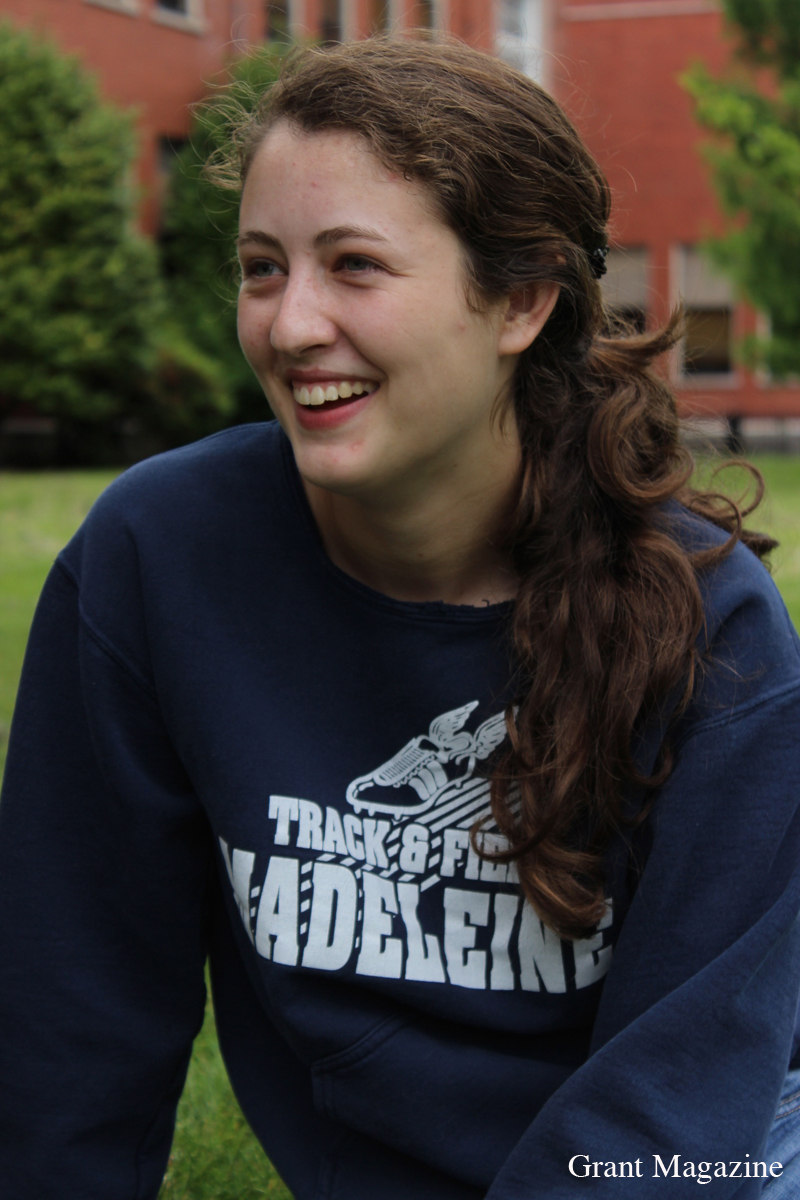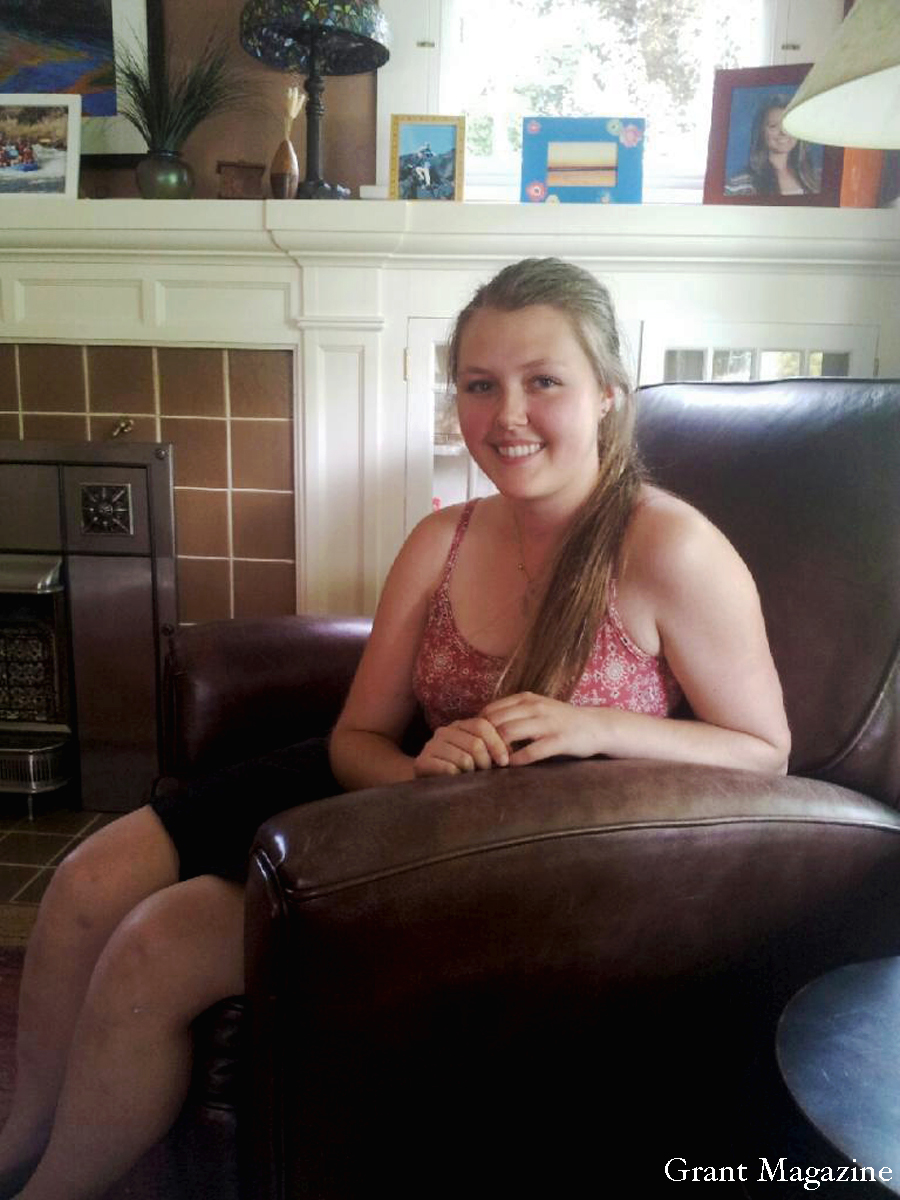Every summer, the Grant Magazine staff holds a journalism camp for rising seventh through ninth graders. Their stories are posted here, on the Grant Magazine website.
From the moment Yen Do, stepped off the plane in Portland, her life was forever changed. For the last year, Do and her family were locked up in a refugee camp in Hong Kong, not knowing how long she would be there. The camp provided them with the things they needed to survive, but they had no freedom to do anything what they wanted. The atmosphere of the camp was tense. There were high levels of crime and suicide among people in the camp.
Stranded in this camp, the only thing Do had to hold on to was her family. Family has always been a big part of Do’s life. “They say if you don’t have family, you cannot do anything. There’s nothing for you to look up to,” Do says.
Do holds her family close to her heart and they’ve been through a lot together. They have survived a dismal refugee camp, the loss of family, and making themselves a place in another country. Today, the whole family works together at a Vietnamese restaurant called My Canh, which sits just four blocks from Grant High School.
Growing up in Vietnam, Do and her family of seven lived in a two-room house in Haiphong, the nation’s third largest city. Being in such a close proximity to her family all the time, Do learned to value the strength of family above everything else.
Do was very close with her siblings, whom she spent many nights making dinner with while her parents were out late at work. Their house was so small that the kitchen was outside, and Do said her mother was often outside cooking. Her mother is now the head chef at My Canh.
Eventually, Do’s family began to long for a “better life,” Do says. So in 1989, Do’s family left Haiphong and took a boat to Hong Kong where they were taken to a refugee camp. The camp, which Do explains as more of a prison, was fenced in and they weren’t allowed to leave. There was nothing to do, no jobs, no entertainment. They lived in huge dorm-like buildings of 80 to 100 people and slept in three levels of bunks.
In the late 1980s and the early 1990s, the immigration rate went up in the surrounding countries, especially in Hong Kong. To prevent a build up of homeless immigrants they put them all in prison camps, to get them off the streets.
“They provide everything for you, because they don’t want you to be outside or do anything, because it would be a big mess for the country,” says Do.
While in the camp, Do and her family were subject to many interviews to see why they had left the Vietnam, among other things.
In 1993, Do’s brother was released from the camp. He was still a minor at the time and the officials wouldn’t let him go without his family. So Do, her parents and other siblings were let out. Sadly Do’s extended family was not released with them and ended up going back to Vietnam. Do hasn’t seen them since the prison camp.
Do and her family decided to move to the United States because they were in search of a better life with more opportunities. Their journey led them to the Portland.
When they finally got off the plane to Portland, Do noticed how big everything was compared to her childhood home in Vietnam.
“There was so much light and so many cars,” she says. She remembers thinking it was like heaven. “It was so big and so clean and so pretty. It’s amazing here.”
For Do, the hardest part about moving was the language barrier. When Do’s family first arrived, nobody spoke any English. It took her until her sophomore year in high school to feel comfortable with the language.
“The first year everybody struggles, nobody knows anything, so you learn it from the ABC’s like in kindergarten,” she says. “By the second year, I was OK with it, but you had to work hard for it.”
Do says schools in the states were much different than what she had experienced home. The change was pretty drastic. “Here, they encourage kids a lot and it’s really nice. But over there (Vietnam) they expect you, to do what you have to do,” Do says.
After high school, Do got married and had the first of her five sons when she was 20. She worked as a nail technician for eight years in a few different places in downtown Portland. Almost three years ago she started working at My Canh for her family.
She now manages the restaurant, “I’m the one who’s in charge of everything, I just run it for the family.”
Today Do, her mother, brother, her sons and many other family members work alongside each other in My Canh. “It’s really fortunate to spend time with family,” Do says.
Though Do says working with family doesn’t always come easy. “It’s just your family, there’s no way it can be smooth,” she says. “You just have to deal with it.”
Do still lives near the restaurant and has noticed over the years how the neighborhood has changed. Both of her sisters have moved to California, one has been in Los Angeles for several years, the other moved to San Francisco a few months ago. No matter how busy the work week is, the part of Do’s family still living in Portland gets together every week for dinner.
Do says that her life back in Vietnam was focused on helping her family. Here, she thinks it’s more focused on her kids, and how they grow up and the opportunities they have.
But they still manage to keep to their own family values, working hard and “going with the flow,” as Do likes to say.
Making the big move to America was challenging for Do and her family. She says no matter what happens, she doesn’t want to lose her values and traditions she had back home.
Do says that her parents are never going to change. “They think that American lifestyle is crazy,” she says. “But for us I think it’s good. It’s freer.”




































